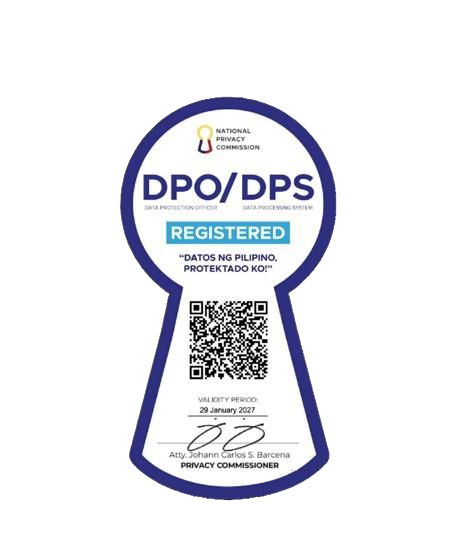According to the latest data, big banks approve only 13.4% of small business loan applications. This approval rate highlights how competitive and challenging the loan process can be for many small business owners.
Securing a business loan isn't just about submitting documents—it involves meeting specific lending criteria, understanding what financial institutions evaluate, and preparing your application strategically. Whether you're launching a new venture or planning to scale, knowing what lenders expect can significantly improve your chances of success.
In this blog, we'll cover the key factors that influence loan approval, common mistakes to avoid, practical steps you can take to strengthen your application, and how n90asia can support you in the journey.
What Is a Small Business Loan?
A small business loan helps SME (Small and Medium Enterprises) to cover the day-to-day expenses, buy inventory, manage cash flow, or fund growth. It gives access to extra capital without needing to dip into personal savings or pause operations. These loans are especially useful when timing is critical, like during expansion or when dealing with delayed customer payments.
What Are the Basic Requirements?
To apply for a small business loan in the Philippines, you'll need to provide some standard documents. These help lenders verify your identity, business status, and ability to repay the loan. Here's a quick look at what you'll typically need.
- Valid ID: This is to confirm your identity as the business owner.
- Loan application form: This is where you provide your business details, contact information, and the amount you want to borrow.
- Business registration: You'll need a certificate from the DTI (for sole proprietors), SEC (for partnerships or corporations), and BIR.
- Business permit or proof of address: This shows that your business is legitimate and operating from a physical location.
- Audited financial statements or income tax returns (ITRs): These help lenders check your income and financial history.
- Other documents include Articles of Partnership, a General Information Sheet, or any other legal paperwork that outlines your business structure.
Understanding what a small business loan is and what you need to apply for is only the first step. But having the right documents doesn't always guarantee approval. So, what can you do to improve your chances? Let's explore some practical ways to strengthen your application and make a good impression on lenders.
8 Tips to Boost Your Chances of Small Business Loan Approval
Getting approved for a small business loan can be a crucial step towards growth. However, many business owners find themselves stuck in the approval process. Lenders need to know that you're a reliable borrower who can pay back what you owe.
Here's a practical guide to help you boost your chances of getting approved for a small business loan in the Philippines.
1. Present a Strong Case for Repayment Ability
Lenders need to see that you can reliably repay the loan. As a business owner, demonstrating your ability to repay is essential. A detailed business plan, including accurate financial projections, is key. Clearly show your revenue streams, operational costs, and expected profits.
If your business is already operational, highlight your past performance and profit trends, making sure they align with your loan request. Avoid overly optimistic projections—being realistic will build credibility and trust with lenders.
2. Understand the Role of a Personal Guarantee
In many cases, securing a loan may require a personal guarantee, especially for small businesses with limited assets. Be prepared for this requirement, as it means you will personally commit your assets, such as property or savings, as collateral.
While this is a standard part of the lending process, it’s crucial to fully understand the implications of a personal guarantee before proceeding. It’s important to balance your personal financial risk with the potential rewards of business growth.
3. Account for Both Business and Personal Debt
Lenders will assess your overall ability to manage debt, including both personal and business financial obligations. If you already carry significant personal debt, this may impact your loan eligibility. To mitigate this, consider involving a co-applicant or guarantor with stronger financial standing. This can not only boost your loan application but also provide lenders with additional confidence in your ability to manage repayment.
4. Be Transparent About Your Financial History
Full transparency regarding your financial history is crucial. If you have any negative marks, such as missed payments or debt issues, disclose them upfront. While this may seem daunting, being honest can work in your favor, as lenders will likely uncover these issues during their evaluation process. Exhibiting honesty and a proactive approach to addressing past financial difficulties will position you as a trustworthy borrower.
5. Borrow Only What You Need—And No More
While it may be tempting to borrow more than what you need, over-borrowing can create unnecessary financial strain. On the other hand, insufficient borrowing could leave your business undercapitalized and unable to meet its immediate needs.
Conduct a thorough assessment of your business’s needs to ensure you borrow just enough capital to cover startup costs, working capital, and contingencies. Being precise and measured with your loan request will increase your credibility in the eyes of the lender.
6. Prepare for Additional Funding Beyond the Loan
It’s essential to recognize that a small business loan may not cover all of your business’s needs. Have a plan in place for securing additional funding sources, such as personal savings, investors, or alternative financing options.
Relying solely on a loan could leave your business vulnerable to cash flow issues, especially in its early stages. Building a financial cushion will help you manage unforeseen expenses while staying on top of loan repayments.
7. Craft a Well-Researched Business Plan
A business plan is more than just a formal document. It’s a comprehensive blueprint of your business’s direction and financial viability. Ensure your business plan outlines clear objectives, a thorough market analysis, a detailed economic forecast, and effective risk management strategies.
Lenders look for businesses that not only have a strong understanding of their market but also the ability to adapt to changing conditions. Regularly update your plan to reflect the current business environment and your evolving strategy.
8. Strengthen Your Financial Literacy
You don’t need to be a finance expert, but you should have a clear understanding of your business’s financial health. Knowledge of key financial statements, such as income statements, balance sheets, and cash flow projections, is essential.
Being able to discuss and explain your financials with clarity will demonstrate your business acumen to lenders. Numerous resources are available to help you enhance your financial knowledge, including online courses, workshops, and mentorship programs.
Following these eight tips gives you a better shot at getting your loan approved. With a clear purpose, strong financials, and a confident pitch, you're showing lenders that you're ready.
In the meantime, if your business needs extra support, n90 offers flexible financing options. We help small businesses manage their cash flow, cover short-term needs, and continue to grow.
How n90 Asia's Financing Options Support Your Small Business?
After going through the necessary paperwork and following the practical steps to improve your chances of loan approval, having access to the right financial support can make all the difference. n90 Asia simplifies this process by offering financing options tailored to the needs of small businesses, allowing you to bridge any gaps while you await loan approval or as you focus on growth.
With flexible solutions designed to ease cash flow management and provide timely access to capital, n90 can streamline the financial side of your business, helping you stay focused on what matters most—running your business.
By turning unpaid invoices into cash advances, businesses can ensure a steady cash flow and maintain financial stability during periods of slow payments or unexpected expenses.
By strategically using n90's financial products, you can strengthen your business's financial position, improving your likelihood of securing a larger loan.
Final Note!
Getting approved for a small business loan doesn't need to feel like a shot in the dark. With the right paperwork, a strong financial plan, and a clear sense of purpose, you can boost your chances significantly. These practical tips aren't just about ticking boxes—they're about showing lenders that your business is built to last. Whether you're expanding, hiring, or simply staying ahead of your cash flow, the right approach can make all the difference.
That's where having a reliable financial partner comes in. At n90, we understand what it takes to keep your business moving forward. We've designed our financing options to give you fast, flexible support when you need it most, so you can focus less on waiting for approvals and more on doing what you do best: running your business.
Ready to take the next step? Apply now, and let's give your business the support it deserves.
FAQs
1. What factors affect my interest rate on a small business loan?
Interest rates on small business loans can vary based on several factors, including the type of loan you apply for, your credit score, business financial health, the amount borrowed, and the length of the loan term. Lenders also consider your industry and the perceived risk associated with it. Strong financials and a solid business plan can help lower rates.
2. How can I improve my business credit score before applying for a loan?
Improving your business credit score involves steps such as paying bills on time, reducing existing debt, and maintaining a low credit utilization ratio. Regularly reviewing your credit reports to correct any inaccuracies and building a positive payment history with suppliers and vendors can also help.
3. How long does it typically take to get approved for a small business loan?
Approval times vary by lender, ranging from a few days to several weeks. Traditional banks tend to have longer processing times, while alternative lenders like n90 may offer quicker approvals. The more prepared you are, the faster the process.














